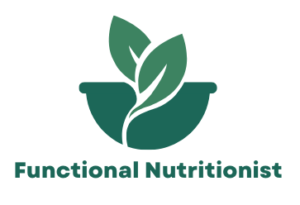Are Your Carbs Really That Bad?
It was over breakfast-time toast and avocado that Arizona resident Michelle, a functional nutritionist, began to wonder: Are all carbs really bad for you? It’s a fact: Arizonans are looking to get healthier, and along with that comes making the carbohydrate the dietary enemy du jour. So let’s dissect this nutrition myth once and for all and perhaps sprinkle some clarity on your plate.

Imagine that poor potato, just hanging out, minding its own biz, and being framed as dietary devil’s food. Carb is not inherently bad; it’s more about what kind of carb you take in. Think of a cupcake carb versus the wholesome, such as quinoa or sweet potato varieties. Talk to that box of pasta in your pantry; it may have more to say than you think!
You have a number of them who are going to be loud and boisterous-the more processed and refined kinds. They’re gonna scream in, they’re gonna make your blood sugar shoot up, but unfortunately, they’ll burn themselves out fast. Then you have the more quiet, more supportive buddies-whole grains and legumes-their energy is steady, and the vibe they provide throughout the day is good. Which one do you want around?
The state of sunshine and the land of epic hikes-Arizona-deserves only the best fuel for your body. Eating whole grains, fruits, and veggies is like putting high-quality gasoline into your car. Refined carbs leave you sputtering at noon. You wouldn’t attempt Camelback Mountain on fumes, would you?
Take Jay of Tucson for instance. An outdoorsy fellow, he replaced his morning doughnut with some oats, mixed with fresh berries and a sprinkle of cinnamon. Voilà: his stamina on the biking trails miraculously improved! He termed his oatmeal a ‘superfood’ on social media, and his joke had a point. Carbs aren’t inherently evil; it’s all about choices and striking a balance.
There was also this lovely lady, Carla, from Phoenix, a chef, who refers to carbohydrates as the “hug of the food world.” Pasta, rice, and bread-most comfort foods revolve around those kinds of things. Carla’s secret sauce is using whole grain pasta in carbonara, comfort laced with veggies and drizzled with olive oil. Yields smiles and satisfaction every single time.
Meanwhile, guilt and carbs are often dancing partners in so many kitchens. Banishing that loaf of bread may sound like a great deal when one aims for a spring break-ready body, but that usually ends up with clandestine midnight snack raids. Instead, bring in moderation. Enjoy that slice of whole grain bread or that scoop of quinoa salad, and bless it for the fiber and nutrients it brings.
Now, let’s see another scenario. Sandra of Scottsdale keeps a tight juggling act between three kids and a full-time job. She needs energy-constant, reliable energy. A sugary granola bar can make a lot of noise, promising a rapid fix, but she depends on the might of complex carbs. A quinoa bowl or brown rice serves much better, holding her through spelling quizzes and presentations in conference rooms.
When functional nutritionist Jane moved to Arizona, it didn’t take her long to figure out that detox diets were the name of the game among the health-conscious. With picture-postcard landscapes and sun-drenched deserts at their doorsteps, the people seemed determined to introduce another element into their lives: cleansing purity. Now, onto the million-dollar question-are these diets doing what they promise, or are they snake oil dressed up in a pretty package?
Visualize yourself under a starry Arizona evening sky, sipping this electric green concoction, earthy in taste, hopefully cleansing your body of all the impurities and making you feel like new. That surely is a pretty dream; where is the science to back it up? A lot of people think a detox diet helps our body get rid of toxins and renovates it anew. But John, a native Arizonan who tried one such diet, jestingly told me, “I felt more like a zombie than a zealot.”
Detox diets often include fasting, liquid-only intake, or extreme elimination of specific foods. Though some people say they feel rejuvenated or lighter, experts warn that these are not magic bullets. Our bodies already have organs like the liver and kidneys working overtime, doing a pretty good job of ridding us of unwanted substances. Pam in Tucson puts it bluntly, “I trust my liver more than leaf juice.”
Does this mean detox diets are all hogwash? Not necessarily. They can sometimes be the jump-start people need to propel them into a healthier lifestyle. Take Elaine in Scottsdale, who after doing a juice cleanse moved into a balanced diet of whole foods. “That first step, although a bit misguided, pushed me into making long-term changes,” she says.
However, beware of those detox fads promising the moon. Certain detox programs lead to deficiencies in nutrition. A week of liquids may be tantalizing for losing those pounds of flesh, but the scale goes against you whenever your energy nose dives. Cravings could kick in hard, and like most Arizonans taking in the views with a Sonoran hot dog, once the cleanse is over, the cravings boomerang.
Many detox programs are also not diverse in vitamins and minerals. Judy, another Flagstaff health enthusiast, learned the hard way. “A month into this detox diet, my hairstylist commented I was shedding more than my dog,” she says with laughter now. It’s balanced nutrition that provides the answer, not self-induced starvation.
If at any time you go through detox programs, numerous testimonials will leave you both excited and skeptical. Some of these seem too good to be true, raising both your interest and skepticism in equal measure-like discovering new hiking trails in Arizona promising great views yet barely signed.
Community-driven initiatives throughout Arizona are redirecting health journeys; local programs position education over enchantment. It’s about dispensing authentic wellness practices that resemble steady desert rains rather than flash floods. Consider community sessions where local health experts go over eating habits in a very sustainable manner without going to extremes.
For Arizonans, it may be less a matter of radical detox programs than the adoption of daily practices that help the body function naturally. A daily dose of hydration, adequate rest, and consuming a variety of nutrient-rich foods can go much further than whatever might be the newest hot trend in detox this month to sweep Scottsdale or Sedona.








